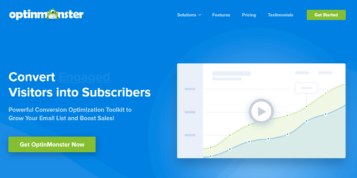It is well known that companies all around the world collect personal data on millions of shoppers. Firms track our past purchases, internet-browsing histories, and even our locations. Most “always-on” digital natives understand this.
Research we recently conducted with Vanson Bourne found that 66% of UK businesses place a high priority on personalisation. However, many struggle to manage and mine customer data to both inform their customer experience strategy, and deliver on the promise of true personalisation. This is a missed opportunity for businesses.
Shoppers don’t mind sharing this personal data with a brand – as long as firms offer something of value in return. Eighty percent of consumers would voluntarily reveal information, such as birthdates, lifestyle habits, and social-network account information, in exchange for rewards points or better product recommendations.
When this works, it leads to a great relationship between brand and customer, with, in the best-case scenario, the brand moving from simply being a product provider, to a trusted advisor with a purpose. But sometimes brands can get it wrong.
Our research, conducted in across 500 consumers, also shows that 98 % of customers say some personalisation is “bad personalisation,” such as when brands use out-of-date information about them (66%) or get their personal details wrong (63%).
People expect personalisation and extra rewards, not extra hassles. Fortunately, some companies are using data to provide customers with the experience they want.
For example, in Europe, Danone Nutricia – a top baby food and infant food manufacturer – moved its online content away from being product focused, and more towards being a helpful advisor to expectant mothers.
The company identified several key things mothers wanted: happy healthy babies, and the need to deal with the unknowns of being pregnant and becoming a parent. To help mothers on this journey, Danone built a customer lifecycle model called “The Mother’s Journey.” The model maps out the first 1,000 days of a mother’s experience from pre-pregnancy to toddler.
It used various data points, including the dates which mothers were expecting to give birth, to offer them meaningful, contextual, and timely advice and support. By engaging with them in this way, Danone Nutricia found that 23% of pregnant women in the Netherlands now use their app.
Of course, the data of expectant mothers needs to be treated especially sensitively. The content delivered needs to reflect the highly personal nature of the subject matter, but this can only be optimised through the use of personal data.
The majority of people appreciate it when content is personalised. Eighty-eight percent of people say that tailored content “somewhat” or “greatly” improves how they feel about a brand. More than half of consumers say that a personalised experience makes them more likely to use a retailer (Verndale Digital Marketing + IT – The Power Couple You Need to Evolve Your Business, provided document, 2.).
This strategy is even more important in the post GDPR landscape. Having spoken to numerous businesses post GDPR implementation, it appears that for many less than 30% of the customers in their databases have agreed to opt in. It’s a trend noted across both B2B and B2C companies and is a huge issue for both alike.
But by taking a longer-term approach to personalisation and value adding to regain the trust of the consumer, businesses can encourage more customers to share more accurate and valuable data. Which of course allows them to acquire deeper insights and further deepen existing customer relationships.
Doing so means employing a coherent omnichannel customer experience strategy using social media, mobile services, voice search channels and also switching to subscription and membership models where possible. Take the Dollar Shave Club for example. It’s a subscription and membership service for cost-effective razors and home grooming products that are delivered to customers by mail. By establishing a gap in the market for cheaper unbranded razors with an automatic refill service, the company has grown to take 12% of the US razor market in just five years.
Companies have to know; however, which types of customer data require a more sensitive approach to personalisation. If shoppers think that companies are prying too much or mismanaging the data they provide, then personalisation can backfire and consumers might unsubscribe.
Consumers are happy to divulge personal information in exchange for a better experience. They just want companies to be patient, think first before using it and to make it easy for them to change their minds and opt out.





